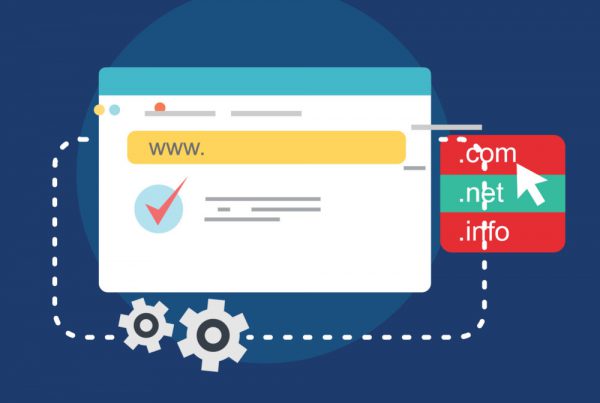What influences you to make purchase decisions?
A few things probably come to mind: your needs or pain points; the quality of the product or service; convenience; price…
But if you’re like most people, social proof trumps all of the above.
A report from Mintel shows 70% of Americans seek the opinions from others before making purchases.
What is Social Proof?
Social proof is just that: trusting the actions and behaviors of others. Robert Cialdini first coined the term in his book, Influence. It’s a psychological and social phenomenon and a type of conformity.
In his book, Robert Cialdini says, “People are especially likely to perform certain actions if they can relate to the people who performed the same actions before them.”
Here are a few examples:
- You are followed on Instagram or Twitter by someone you’re not sure you know. What’s one of the first things you do? Check out how many followers they have and if anyone you know also follows them, right?
- You’re picking out a place to make dinner reservations. You’ve narrowed your choices down to 3 when you remember one of your finalists was recently recommended to you by a good friend.
- You need a new jacket, so you head to Amazon. A few products show on the first two rows. Most have around 30 reviews while one has 740 with 4.2 stars. If you don’t have additional information on the other brands shown, it’s likely this jacket catches your eye first.
It is human nature to be drawn to what others are drawn to. It’s human nature to follow the crowd.
The marketing implications are clear. In short, if a business can effectively build and showcase social proof, they will succeed.
Types of Social Proof in Marketing
When it comes to making purchase decisions, different people are drawn to different forms of persuasion. For some, a recommendation from a trusted friend goes a long way. Others may be really moved by a celebrity endorsement. Still others trust the crowd.
Because of this, there are four key types of social proof in marketing:
- Expert: recognition or recommendation from a well-known authority in the field
- Celebrity: endorsement from a celebrity or influencer
- Customer / User: review or recommendation from a customer or user
- Crowd: endorsement from a large group of people
Leveraging these four types of social proof is key to big time growth.
5 Ways Use Social Proof in Marketing
So how does a business get started utilizing social proof in their marketing?
For starters, you must be selling a stellar product or providing world class services. This can not be emphasized enough: you will not be able to generate social proof if your offering is sub-par.
Perhaps you could scrap together a few testimonials or pay an influencer to endorse your product, but at some point the gig will run out. The last thing you want to do with a less-than-stellar offering is amplify it.
1. Acquire Positive Reviews and Testimonials
The first step to using social proof is generating and acquiring reviews and testimonials. These can come in many forms: high praise submitted via email, a Tweet about how awesome your product is, or a review on an industry-specific comparison site.
How can you acquire social proof?
- Produce a High Quality Offering: we can’t harp on this enough. Put out an incredible product and you won’t have to do much to gain reviews or testimonials.
- Actively Ask: don’t be afraid to ask for it. Give instructions for what you’re looking for, but don’t put words in anyone’s mouth. This can be automated via emails and texts. Or if you have a small number of clients, a manual ask should work wonders.
- Provide Passive Opportunities: in addition to asking, provide passive options for people to review. For example, include a link to review on your website, in your email signature, or on marketing material.
Where should you acquire reviews?
You need a good mix of social proof sources. Direct quotes, social media mentions, and online reviews are all important. This depends on what you do – every industry has different review sites and platforms. Here are the top 3 reputable review sites for different types of business:
- SaaS: G2, Capterra, Trust Radius
- B2C Products: Amazon, Which, Influenster
- Local Businesses: Google Reviews, Yelp, Industry-Specific Sites:
- Law Firms: Nolo, Justia, Avvo
- Restaurants: Yelp, Open Table, Zomato, TripAdvisor
- Home Services: HomeAdvisor, Yelp, Angie’s List
2. Showcase Social Proof
Once social proof has been acquired, your next step is to showcase and feature it. Social proof floating out in the universe can help your reputation, but why not corral it in order to get the most out of it?
Here are a few ways to showcase social proof:
Highlight social proof on your website
- Feature testimonials from your top (or most well known) clients on your homepage
- Show imagery of happy customers
- Embed product reviews
Share milestones and achievements
- Feature certifications on your site
- Share awards on social media platforms
Mention the size of your customer base (if applicable)
- Place notable metrics in social bios (ex: Serving over 100,000 small businesses in…)
- Highlight it on your homepage
- Use it on email signups (ex: Join 5,000 others…)
3. Share User Generated Content Organically
User generated content is some of the most powerful content on the internet. Unprompted positive reviews from users and customers on their social accounts says a lot about the quality of your offering in a way other types of reviews don’t.
Here are some ways to share user generated content:
- Retweet / Repost social mentions
- Respond and show appreciation
- Share customer’s love of your service / product
4. Connect with Experts
Experts’ opinions carry a lot of weight. If your business is in a specific niche, this kind of social proof can be a game changer.
There are a couple of ways to do this.
You can send your product to an expert and request feedback, which can turn into a review or testimonial. Authors and publishers do this all the time, as do businesses. Depending on your industry, this can be a great way to get expert reviews.
If you don’t sell a product, you can offer your services, or attempt to show off some results or case studies that they could peruse and comment on.
5. Partner with Influencers
Influencers are taking over the marketing world as more and more brands realize the importance of social proof. Look at the Fyre Fest phenomena of 2018. People were so enamored and convinced by influencer marketing that they paid thousands to fly to an island in the middle of nowhere only to be jipped.
The social proof celebrities carry is that powerful – whether you believe they should be seen as credible or not (a conversation for another time).
If you’re a big brand, there are plenty of options for partnering with influencers.
For smaller brands, micro-influencer relationships are a much more affordable option. Many brands will partner with individuals who have large social media followings, but no real celebrity status.
Smaller brands have been known to provide micro-influencers with affiliate codes and give them a percentage of revenue they bring in – opposed to making a big deal or creating an elaborate contract for them.
How? Don’t make it complicated. Find some highly followed local instagram accounts and send them DMs on Instagram them to gauge their interests.
Give Customers Something to Rave About
At the end of the day, the most effective way to build social proof for your marketing and brand is by providing an offering that’s worth raving about.
Without this foundational piece of the marketing mix, you won’t make it far on a quest for social proof.
Start the Conversation
Interested in learning more about how your website establishes credibility for your company?



